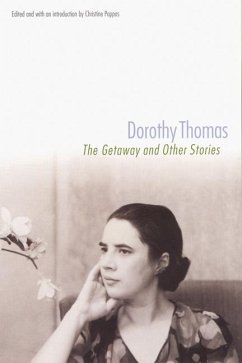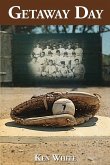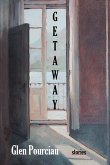Despite the rustic charm of their settings, the bitingly humorous short stories of Dorothy Thomas (1898-1990) challenge stereotypes of good-hearted country people-a harried woman tries to rid herself of her impertinent son as he refuses to cooperate with her plans to leave him and his father for another man; an old woman given a late second chance to marry the man she loves loses out once more because of her literal mindedness; a child's fib grows into a detailed fiction leading one family to embarrassment and another to stretch beyond their means; and two little girls with childish ingenuity foil their step-mother's opportunity for a romantic fling when their father is away.
In these twelve stories Thomas is most concerned with the flaws in familial relationships, but her analysis never turns bitter. Thomas used what she called "telling detail" to animate her characters as they repeatedly trump their family's needs with their own desires, and children are often the most prescient of all about the self-destructive plans of the adults around them.
Dorothy Thomas dropped out of high school and taught school in Scottsbluff, Nebraska, to help support her family. While living in western Nebraska, she began to write short stories inspired by the insights afforded by her position as a live-in teacher in the homes of her students. She began to publish her stories in magazines such as the New Yorker and Atlantic Monthly and eventually gave up teaching to write full-time. She also published two books-Ma Jeeter's Girls and The Home Place-and became part of the writing community centered around the literary magazine Prairie Schooner.
Christine Pappas is the founding editor of Plains Song Review and is an assistant professor of political science at East Central University.
"Every once in a while, something comes along to remind us that we, too, have the art spirit. Consider the writer who rose from an early 1900s Bohemian scene in Lincoln, Nebraska. The short stories of Dorothy Thomas sparkled in the writing circle that sprouted around the still-thriving literary quarterly Prairie Schooner. . . . Her simple, sympathetic tales seem a lost art. Short-story fans---and those who dream of a Heartland that is a creative as it is hardworking---will hold dear this collection. Glad you're back, Ms. Thomas." December 2002 issue of Midwest Living
Hinweis: Dieser Artikel kann nur an eine deutsche Lieferadresse ausgeliefert werden.
In these twelve stories Thomas is most concerned with the flaws in familial relationships, but her analysis never turns bitter. Thomas used what she called "telling detail" to animate her characters as they repeatedly trump their family's needs with their own desires, and children are often the most prescient of all about the self-destructive plans of the adults around them.
Dorothy Thomas dropped out of high school and taught school in Scottsbluff, Nebraska, to help support her family. While living in western Nebraska, she began to write short stories inspired by the insights afforded by her position as a live-in teacher in the homes of her students. She began to publish her stories in magazines such as the New Yorker and Atlantic Monthly and eventually gave up teaching to write full-time. She also published two books-Ma Jeeter's Girls and The Home Place-and became part of the writing community centered around the literary magazine Prairie Schooner.
Christine Pappas is the founding editor of Plains Song Review and is an assistant professor of political science at East Central University.
"Every once in a while, something comes along to remind us that we, too, have the art spirit. Consider the writer who rose from an early 1900s Bohemian scene in Lincoln, Nebraska. The short stories of Dorothy Thomas sparkled in the writing circle that sprouted around the still-thriving literary quarterly Prairie Schooner. . . . Her simple, sympathetic tales seem a lost art. Short-story fans---and those who dream of a Heartland that is a creative as it is hardworking---will hold dear this collection. Glad you're back, Ms. Thomas." December 2002 issue of Midwest Living
Hinweis: Dieser Artikel kann nur an eine deutsche Lieferadresse ausgeliefert werden.







